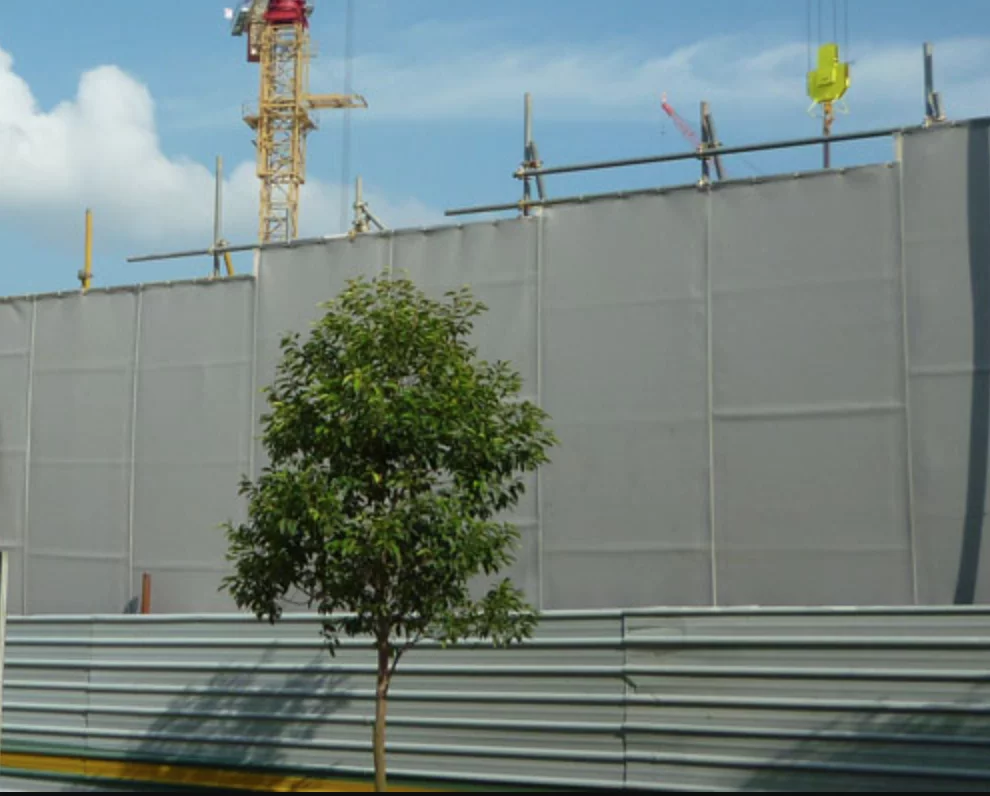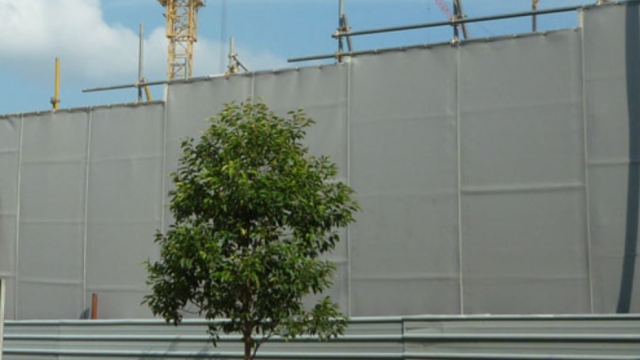
Noise has become an unavoidable aspect of our daily lives, especially in environments where sports are played. From the enthusiastic cheers of spectators to the sharp crack of a racket against a ball, these sounds contribute to the vibrant atmosphere of athletic activities. However, for those living near sports facilities, the harmony of sport can often lead to disturbances and disruption. As communities strive to balance enjoyment and peace, the need for innovative sound barrier solutions has never been more pressing.
SportSonicGuard.com recognizes this challenge and offers advanced solutions designed to significantly reduce noise from sports activities such as pickleball and tennis. By leveraging cutting-edge technology, these sound barriers aim to create a more enjoyable environment for both athletes and nearby residents. In this article, we will explore how these innovative strategies can help break the silence while allowing sports to flourish without compromising comfort for the surrounding community.
Understanding the Sound Barrier
The sound barrier refers to the sudden increase in aerodynamic drag that occurs as an object approaches the speed of sound. This phenomenon is particularly relevant in aviation and various forms of transportation, but it also has implications in everyday environments where noise reduction is sought. As sound waves approach a certain threshold, they encounter resistance that leads to heightened noise levels. Understanding this principle is crucial for developing effective solutions to manage and mitigate noise in specific contexts, such as sports.
In sports environments, activities like pickleball and tennis often generate substantial noise that can disrupt nearby residents and communities. The need to balance engaging sporting events with maintaining a peaceful atmosphere has prompted innovative approaches to sound management. Companies like SportSonicGuard.com are at the forefront of creating advanced sound barrier solutions tailored for these types of activities. Their products are designed not only to dampen noise but also to enhance the overall experience for players and spectators alike.
Get In Touch
Innovations in sound barrier technology leverage materials and engineering strategies that effectively absorb and deflect sound waves. These barriers can be integrated into existing sports facilities or designed for temporary use during events. By understanding the nuances of sound propagation and the barriers that can be constructed, stakeholders can implement solutions that allow for lively sports activities while ensuring a disruption-free environment for surrounding communities.
Innovations in Sound Reduction Technology
Recent advancements in sound reduction technology have been pivotal in addressing noise pollution in sports environments. Innovative materials such as sound-absorbing foams and specialized acoustical panels are being utilized to enhance the acoustic performance of indoor and outdoor facilities. These materials not only minimize noise transmission but also improve the overall experience for players and spectators alike. Companies like SportSonicGuard.com are at the forefront, offering tailored solutions that integrate seamlessly with existing infrastructure.
Moreover, the development of modular sound barriers has revolutionized the way sports complexes manage noise. These barriers can be easily assembled and disassembled, allowing for flexibility in different settings, whether it be during a large event or regular activities. Sporting venues can now implement these temporary or permanent barriers to entirely reshape the auditory landscape, allowing games like pickleball and tennis to thrive without disruptive noise levels affecting nearby communities.
In addition to physical structures, technological innovations such as smart sound management systems are emerging. These systems utilize sensors and AI to monitor noise levels in real-time, adjusting sound barriers and dampening measures as needed. This proactive approach not only enhances player performance but also respects the tranquility of surrounding areas, creating a harmonious balance between sports enjoyment and community peace.
SportSonicGuard.com: A Game Changer
SportSonicGuard.com stands at the forefront of innovative sound barrier solutions, making a significant impact on the sporting world, especially for activities like pickleball and tennis. These sports, while beloved for their fast-paced action and community spirit, often generate noise that can be disruptive to both players and nearby residents. With the advent of advanced sound-dampening technologies, SportSonicGuard.com offers a practical approach to minimize this noise, enhancing the playing experience without sacrificing the excitement of the game.
What sets SportSonicGuard.com apart is its commitment to research and development. Their team of experts has meticulously designed sound barriers that are not only effective but also aesthetically pleasing and durable. These solutions integrate seamlessly into sports environments, allowing facilities to maintain their visual appeal while significantly reducing unwanted sound. By prioritizing both functionality and design, SportSonicGuard.com ensures that sports venues can thrive without creating disturbances in their communities.
As more sports complexes and clubs recognize the importance of sound management, SportSonicGuard.com is poised to become the go-to source for noise reduction solutions. Their innovative products empower facilities to provide a better experience for players and spectators alike, fostering a positive atmosphere for everyone involved. With their dedication to quality and effectiveness, SportSonicGuard.com is truly a game changer in the quest to break the silence within our sports arenas.
Impact on Sports Communities
The introduction of sound barrier solutions by SportSonicGuard.com has had a transformative effect on sports communities, particularly in environments where noise pollution has been a growing concern. Facilities that host pickleball, tennis, and other sports activities have seen a notable reduction in disruptive sound levels, allowing players to focus on their game without distraction. This innovation not only enhances the playing experience but also fosters a more inclusive atmosphere where all participants can enjoy their favorite sports.
Moreover, lower noise levels contribute to improved community relations. Many sports facilities are located near residential areas, and the significant decrease in sound disturbances helps to alleviate tensions between local residents and sports enthusiasts. By minimizing noise complaints, these communities can thrive together, creating a shared space that encourages participation in various athletic activities while respecting the needs of nearby residents.
The benefits extend beyond just noise reduction; they also include increased participation and engagement within sports communities. With enhanced playing conditions, more individuals may be encouraged to take part in sports like pickleball and tennis. This boost in participation can lead to the development of leagues, tournaments, and community events that strengthen social bonds and promote healthier lifestyles, ultimately enriching the fabric of the community.
Future of Noise Management in Sports
The future of noise management in sports looks promising, with innovative technologies emerging to address the challenges posed by sound pollution at various facilities. As community spaces and sports complexes expand, the demand for effective sound barrier solutions becomes critical. Companies like SportSonicGuard.com are paving the way with cutting-edge materials and designs that significantly reduce noise generated from activities like pickleball and tennis. These advancements not only enhance the experience for players but also help maintain peaceful environments for surrounding neighborhoods.
In addition to traditional noise control measures, the industry is beginning to implement smart technologies that allow for real-time monitoring of sound levels in sports venues. This integration of smart sensors can provide valuable data to facility managers, enabling them to actively manage noise and take corrective actions when needed. With customizable settings, these solutions can adjust to varying conditions, ensuring that noise levels remain within acceptable limits during different events and practices.
As awareness of the impact of sports noise ramps up, more regulatory bodies may establish guidelines to protect both athletes and communities. This shift will likely spur further innovation in acoustic engineering, leading to new projects focused on noise reduction. The collaboration between sports organizations, technology developers, and local governments will play a crucial role in shaping spaces where sports can thrive without disturbing the peace.

